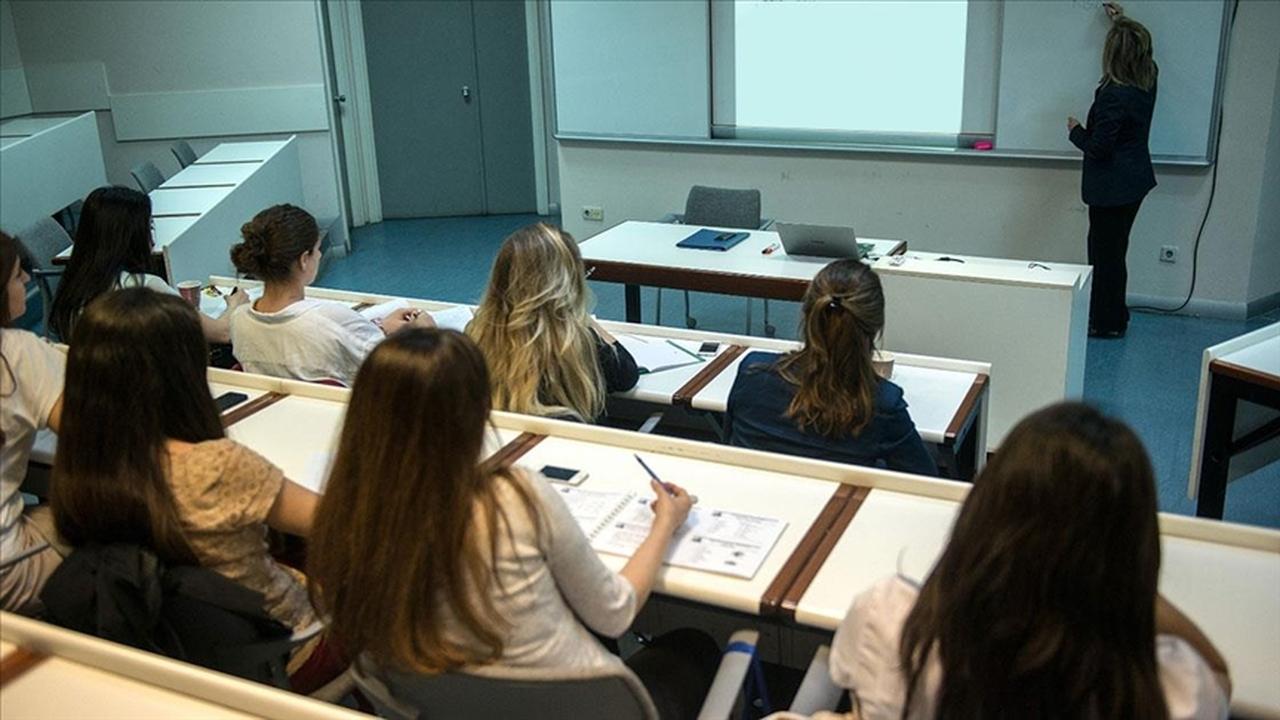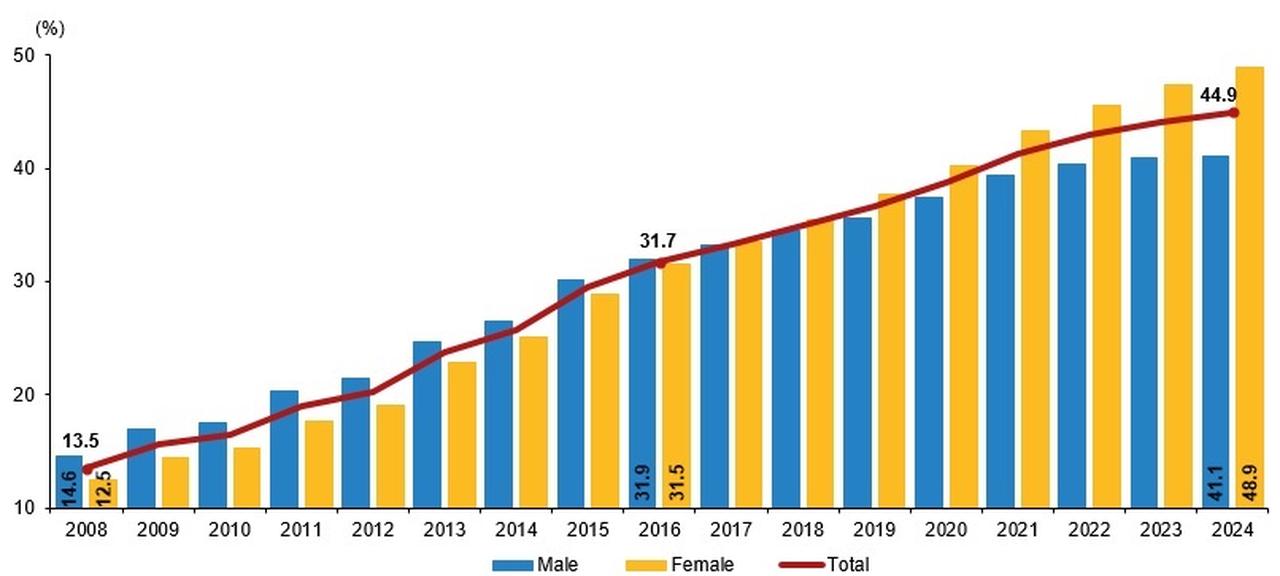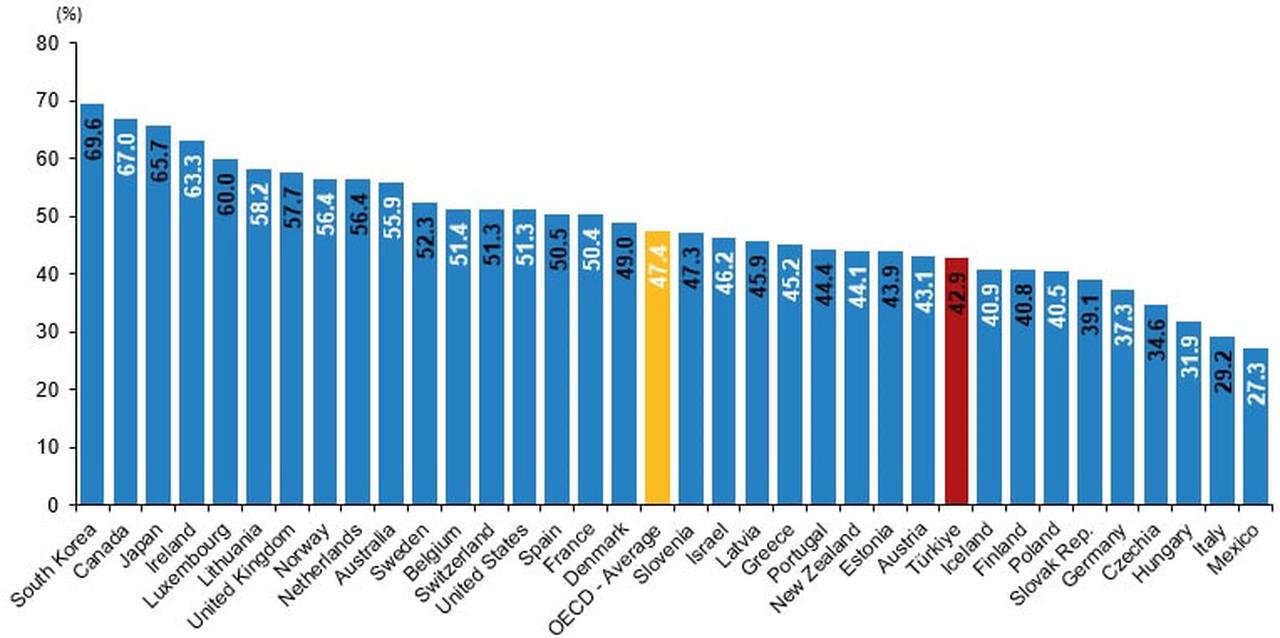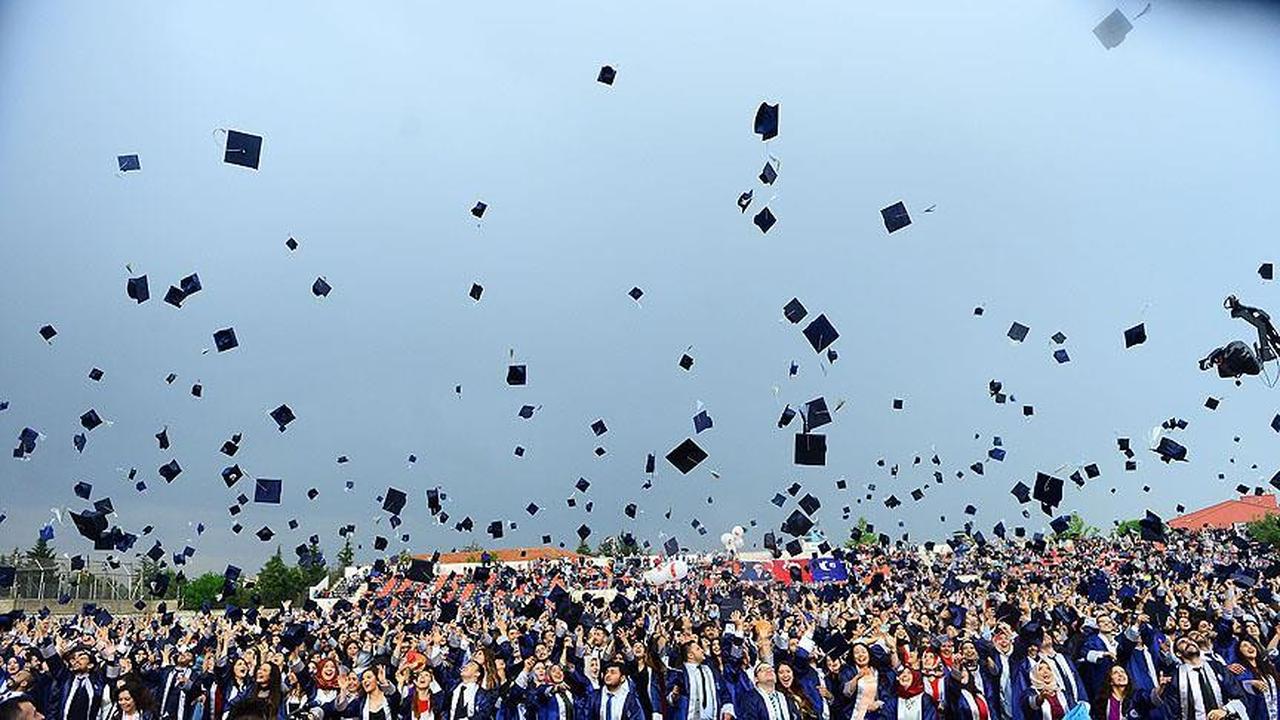
The share of university graduates among Türkiye’s 25–34 age group rose to 44.9% in 2024, while Ankara ranked as the most educated city based on average years of schooling, according to the Turkish Statistical Institute (TurkStat).
Thus, the share of university graduates in Türkiye’s 25–34 age group has risen significantly from just 13.5% in 2008.
The increase is particularly notable among women, with the rate climbing from 12.5% to 48.9%, while the rate for men rose from 14.6% to 41.1% over the same period.

According to the latest available data from the Organisation for Economic Co-operation and Development (OECD) covering 2022, Türkiye’s higher education attainment rate among 25–34-year-olds stood at 42.9%, slightly below the OECD average of 47.4%. South Korea ranked highest at 69.6%, while Mexico had the lowest rate at 27.3%.
For the broader adult population aged 25 and over, the share of associate, bachelor's, master's, or doctoral degree holders rose from 9.8% in 2008 to 25.3% last year. Meanwhile, the percentage of those who completed at least secondary education increased from 26.5% to 49.4% over the same period.

The average duration of formal education among people aged 25 and over in Türkiye reached 9.5 years in 2024. Gender disparities persist, with men averaging 10.2 years of education, compared to 8.8 years for women.
Ankara recorded the longest average schooling period at 10.8 years, followed by Istanbul, Eskisehir, Kocaeli, and Izmir. At the other end of the scale, the eastern province of Agri reported the lowest average at 7.5 years, with Sanliurfa, Mus, Kastamonu, and Van also among the lowest-ranked regions.

The share of literate individuals aged six and over increased from 91.8% in 2008 to 97.8% in 2024. The literacy rate for women rose significantly, from 86.9% to 96.2%, while the rate for men improved from 96.7% to 99.3% over the same period.